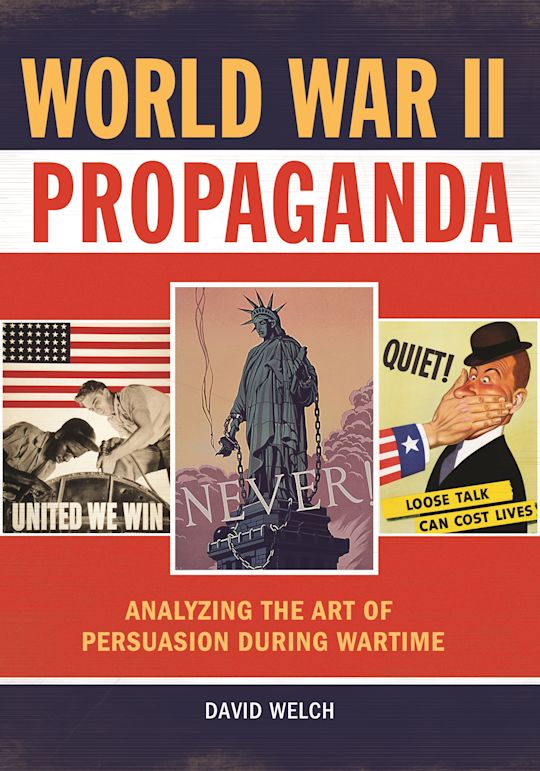Human Choice: Would you act unethically when you are alone on a deserted island?
Human Factors in
HSE & CSR
By Arend van Campen, from his
book; ‘Safety of Ethics’; which was nominated for the Energy Institute Award on
Safety 2014.
Astronomer and well known scientist Carl Sagan spoke of the
fact that we all live on earth, the only place we know where life is possible;
‘ we live on a speck of dust caught in a sunbeam.’ He spoke about the necessity
to cherish and preserve our planet because everything we use and everyone we
know lives on it. Everyone, including managers of tank storage and energy
corporations, commodity traders, politicians or bankers depend on vital
resources such as drinking water, food and shelter provided only by our earth.
Human choices or as they are often called in the Health,
Safety and Environment (HSE) and Corporate Social Responsibility (CSR) world,
‘Human factors’ are decisive and ultimately responsible and accountable for
ethical implementation of HSE and CSR policies. Human factors are a combination of human
consciousness and human conscience.
Despite an ever growing volume of HSE & CSR laws, rules,
regulations and guidelines offered by organizations such as ISGOTT
(International Safety Guide Oil Tankers and Terminals), SOLAS (Safety of Life
at Sea), OCIMF (Oil Companies International Marine Forum, IFC (International
Finance Corporation) or ISO certification standards like ISO 31000 on risk
management, ISO 26000 on social responsibility and ISO 14000 on environmental
management, they are not a priority. The question is; ‘why?’
Our
research found answers. It
observed human choice and behaviour in ethical issues in real time against an
increasing volume of rules of conduct concerning HSE and CSR policies. Because economic gain or growth is often the
main motivating factor, HSE and CSR policies are deemed useful only to contain
risk or liability for the short term. They are often used as ‘window dressing’.
The following shows a listing of safety, health, environment
rules, guidelines and regulations compared with real life observations in the
field:
|
HSE articles
|
Observations in the field
|
|
1. Safety,
Environment and health protection
|
Pumping off spec effluent in ocean
|
|
2. Applicable laws
compliance
|
Non-compliance, no gas flaring law exists
|
|
3. Incident
feedback/information
|
No proper communication about shore tank overflow incident
|
|
4. Selection of
industrial partners
|
Chain responsibility of hauled waste and treatment was
questionable
|
|
5. HSE risk management
|
Thousands of pages.
Proper pragmatic interpretation were visibly not adhered to in terminal
|
|
6. HSE assessment
|
Only fix when broken attitude. Sampling equipment not available
|
|
7. Emergency
procedures
|
Oil boom was not in operational condition
|
|
8. Personal responsibility
|
Local staff welcomed the research because they felt that
management had delayed needed action
|
|
9. Social responsibility
|
Polluted rivers, blocked oil / water sewer systems
endanger local communities
|
|
10. Sustainable development
|
Solutions may have been developed, but they were not
implemented, nor were they included in their planned investment. This was
found to be the main cause of non-adherence to in house HSE / CSR regulation,
guidelines and rules.
|
What we found in
several other case studies in the storage terminal and energy industry is that
the above observations are linked with the unwillingness to spend money for
modernization of infrastructure or protection of the environment, health or
safety, unless it is ordered by law, demanded by authorities, environmental
protection agencies or required by international standards dictated from
auditing bodies. Choosing from an innate and naturally provided conscience to
protect human and non-human life has often been replaced by reluctance to
comply only. To do more than just comply is considered to be an extra expense.
This is a false assumption and too often proven by enormous costs at a later
date.
Compliance costs
more than self-aware prevention and anticipation which human ethics or morality
gives us.
This has led to
several incidents and even closure of a large oil and chemical storage terminal
in Rotterdam, Botlek. Here management knowingly continued operations despite
HSE & CSR flaws and risks that were reported by personnel but were ignored
for ulterior motives (i.e. to keep operational as long as possible to make
money). They even engaged in new contracts by promising clients they’d be
operational knowing they would not be ready with updating their obsolete HSE
systems in time as contractually agreed
.
Leadership Ethics, CSR & HSE
Human conscience is morality and should be used for
decisions. Not doing so will directly cause vulnerability as one will be found
out and one will have to rely on others to keep their mouths shut. (whistle-blowers).
Business Ethics is now to be considered a science. This is
explained by Dr.Joanne Ciulla, professor of Leadership and Ethics, University of Richmond.
Ciulla states that it could mean a completion of a
re-integration process of physical science with moral philosophy (ethics).
Acceptance that ethics is indeed scientific supports that greed
or economic growth is not a moral motive.
Neither can greed be the foundation of a character. It can be acquired, cultivated by example
(learned) or imitated.
Notions of the good have to be part of business ethics
leadership. Ciulla confirms that Aristotle and Zeno’s virtues such as justice,
temperance, fortitude and prudence create moral capital and how vices such as
injustice, greed or fear of loss of money or status destroy it. She categorizes moral assessment of
leadership as follows:
·
The ethics of leaders themselves, the intentions
of leaders and the personal ethics of leaders
·
The ethics of how a leader leads (or the process
of leadership) –the means that a leader uses to lead (the ethics of the
relationship between leaders and all those affected by his or her actions)
·
The ethics of what a leader does- the ends of
leadership
Solutions to Human Factor leadership issues.
Bertrand Russell, Kierkegaard, Jean Paul Sartre, Immanuel
Kant, Ayn Rand, Zeno, Plato, Aristotle and Joanna Ciulla suggest that human
behaviour, moral or immoral can be tested by asking questions that give total
answers.
These answers must allow unfamiliar possibilities and
acceptance of the whole picture. The
inquiry must aim at the principle purpose of knowledge.
This line of questioning is essential to enable proper
implementation and adherence to HSE and CSR guidelines. Philosophical
questioning uses the rhetorical method that triggers human conscience to
answer, preventing a tendency to hide the truth because lying would be
considered illogical as that would damage the responder.
Tendencies of greed or fear can as such, be detected as
choices, rather than hereditary traits or genetic behaviour. Questions can be
formulated in a manner that can only be answered by conscious reasoning guided
by biological social traits that are inherent to man and not learned or
acquired. Lies could therefore be
detected, because answers that sound contradictive to well-being or survival
can be determined as untruths.
Practical use of the rhetorical method may be used as in the
following example:
‘If damage would be
suffered by yourself, would you continue being unethical?’ The answer would be
‘no’.
Accidents such the Macondo Oil Spill in Louisiana or incidents
like discharging of contaminated effluent into the Ocean can be triggered by a
number of motivational human factors.
They were called ‘metaphorical dominoes’ by Herbert William Heinrich in 1929. Heinrich’s studies were used in their
original form until they were updated in 1976, at which time Health Safety and
Environment risks became important liability issues or in other words, started
to cost more money.
Heinrich
wrote that these human factors are passed along through inheritance or
developed from a person’s social environment.
At the time of Heinrich’s study in 1929, it was widely accepted that
character flaws could be hereditary or were considered genetic – ‘The apple
doesn’t fall far from the tree’.
Fault of
Person – character flaws
·
Stubbornness
·
Greed
·
Recklessness
·
Inconsiderateness
·
Ignorance
These human
factors are called metaphorical dominoes because the very nature of accidents
mirrors the so-called domino effect.
Accidents
or incidents result from a chain of sequential events as if a line of dominoes
are falling over that are mainly caused by human choice.
This is in
line with the theory of causality, the relationship between cause and
effect.
Human factors
contribute to decision-making processes and have to be taken into account. The
dominoes involved do not only include character flaws, but also account for
outside influences such as social environment.
A more in-depth look at the nature of our game of dominoes is as
follows:
·
Social
environment – this deals with the personality of the person explaining that
personality traits such as stubbornness, greed and recklessness can be passed
along through inheritance, or develops from a person’s social environment. Nature and nurture contribute to the faults
of person. (The ‘inheritance’ factor was
generally accepted at that time and is to this day often used as an excuse)
(Sapolsky, Robert, 2011).
·
Fault
of person – bad temper, ignorance, recklessness lead to unsafe acts.
·
Unsafe
act or unsafe condition – Heinrich defined four reasons why people commit
unsafe acts; improper attitude, lack of knowledge or skill, physical
unsuitability, improper mechanical or physical environment.
·
Accidents
can be the result of the above.
·
Injury
can be the result of the above.
However,
actions, incidents or accidents deriving from these character flaws are
dependent on and have impact on other persons and the environment. An individual cannot develop these features
on his own or totally alone, unless he or she chooses to do so out of greed,
fear or acts out of unawareness.
This
research proposes an Island Theory which
is based on the following logical deliberation and on research earlier
discussed about the necessity of interaction of unethical individuals or
corporations with a community or society.
It almost
always involves a complementary reduction in other people’s outcomes.
Trying to
survive on an island would mean that he or she would not be stubborn nor greedy
and would not use ignorance as an excuse.
He or she would naturally know he or she will not and cannot survive
allowing these traits (character flaws) to reign. Clinging on to learned character
flaws when living alone on an island would harm him or her. To survive alone,
people would be able and probably willing to choose to lose character flaws
such as bad temper, recklessness or lack of skill, unless they choose not to
survive or don’t care. The first human and natural reaction, rational or irrational,
is self-preservation.
This led to
the conclusion: Take away other people (tools), and unethical behavior stops,
as it is not in his or her interest any longer to proceed. His or her own reasoning faculty would tell
that holding on to these flaws does not bring an intended pay-off, because no
one is available to pay for it.
The domino
factors partly explain that it is human choice, often triggered by character
flaws, motivated choice or ignorance that can create risk. These factors can be
minimized by learning and training. Character flaws are learned but can be
altered, despite the deeply rooted general understanding or acceptance that
they can’t. Nurture and nature combined guides and creates human activity and
forms the foundations for choice. There is a difference between being able to
choose by contemplation, or to act automatically by animalistic instinct. There
is a choice possible to use one’s rationally developed essence: human reason. The
difference between an animal’s instinctive choice and man’s ability of reasoning
before choosing is that man asks ‘why?’



Reacties
Een reactie posten